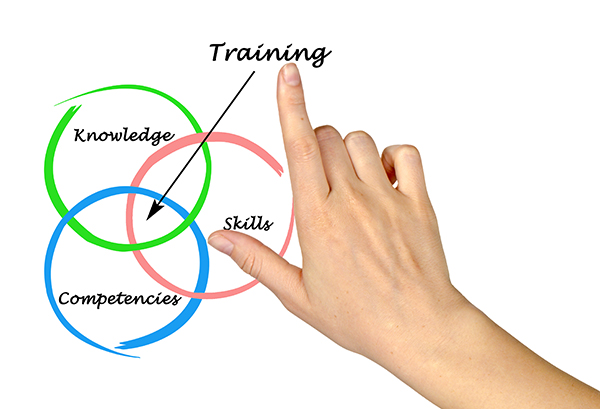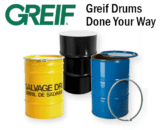 Should people who handle Dangerous Goods be as competent at their jobs as doctors are at theirs?
Should people who handle Dangerous Goods be as competent at their jobs as doctors are at theirs?
Philip Mondor thinks so. “Doctors, nurses and lawyers are subject to rigorous competency assessments based on robust science. We’re seeing an emergence of similar practices in occupational areas that have regulated aspects, like logistics.”
Mondor is the president of Tourism HR Canada and has served on several government advisory panels. At the 2018 Dangerous Goods Symposium, he led two sessions about the importance of competence assessments and how to administer them. The hazmat trainers in attendance were all ears.
The Competency Assessment competency assessment
No one is suggesting that hazmat employees go to college for 10 years to study their trade. But in Dangerous Goods transport, as in medicine, lives depend on professionals being competent at what they do.
By law, all hazmat employees receive hazmat training. But training doesn’t guarantee that people can actually do their jobs well—that’s where competency assessment comes in.
How well do you understand the science and practice of competency assessments? Find out—take our Competency Assessment competency assessment!
- When a hazmat employee completes a Dangerous Goods training course, this proves that he or she…
- Has completed a Dangerous Goods training course
- Is competent at a specific Dangerous Goods-related responsibility
- Is competent at most Dangerous Goods-related responsibilities
- Is competent at all Dangerous Goods-related responsibilities
Correct answer: 1. At Labelmaster, we believe we offer the industry’s most robust online Dangerous Goods training courses. But there’s a big difference between passing an online test and applying what you’ve learned in real life. Only a competency assessment can determine whether or not someone can actually do the job correctly.
- A truly objective, valid competency assessment can be performed by…
- An employer
- A third-party Dangerous Goods trainer
- A third-party competency assessor
- Any of the above
Correct answer: 3. “Having the employer do an assessment makes the whole exercise somewhat moot,” says Mondor. “There’s the perception of a conflict of interest, so it can’t be unbiased. For a third-party trainer, it’s advantageous to make sure everyone passes. Even if they’re completely above board, it raises questions about legitimacy.”
- Where are third-party competency assessments a required element of Dangerous Goods training?
- Everywhere
- Only in Europe and Canada
- Only in Canada
- Nowhere
Correct answer: 4. “In Canada, the employer is responsible for assessing competency, but the only real measure is ‘Did they assess them?’” says Mondor. “It’s just obligating the employer to check a box.”
- Dangerous Goods professionals should have their competency assessed with “high stakes” tools, because…
- They are extremely well paid
- Their work has major and direct consequences
- They like to gamble
- Regulatory agencies are watching
Correct answer: 2. Mondor says, “You need a stringent psychometric protocol because you don’t want to fool around. You are measuring whether someone is able to do this work. People are starting to understand the need to test and assess competency, but the rigor often falls short of the need.”
- Which of the following tools can result in a fair, valid assessment of competency?
- Multiple choice examinations
- Structured interviews
- Observation, demonstration and simulation
- All of the above
Correct answer: 4. Properly administered, there are many methods that can assess someone’s competency, but Mondor says multiple choice tests are “the most reliable, valid and defensible, bar none. It’s the most researched method, with the highest levels of fairness.”
Competency assessments can limit liability, boost productivity
Mondor is aware that many companies may view competency assessments as an additional layer of cost on top of what they already pay for training. He points to two reasons companies should invest more in competency assessments.
“Competency assessments can mitigate liability,” he says. “Say there’s a catastrophic event, or a worker injures himself. When you can document you’ve done everything to demonstrate competence, that’s due diligence that protects your rights as a company.”
More importantly, though, he insists that competency assessments are simply a good, fundamental business practice.
“You’re in the business of assessment even if you don’t think you are. When you invest in training and assure your people can do their jobs well, you reduce waste, boost productivity and increase retention. If you don’t, you’re not a very good business operator.
“Why wouldn’t you want to do a better job and make more money?”
Labelmaster is a full-service provider of goods and services for hazardous materials and Dangerous Goods professionals, shippers, transport operators and EH&S providers. See our full line of solutions at labelmaster.com.


